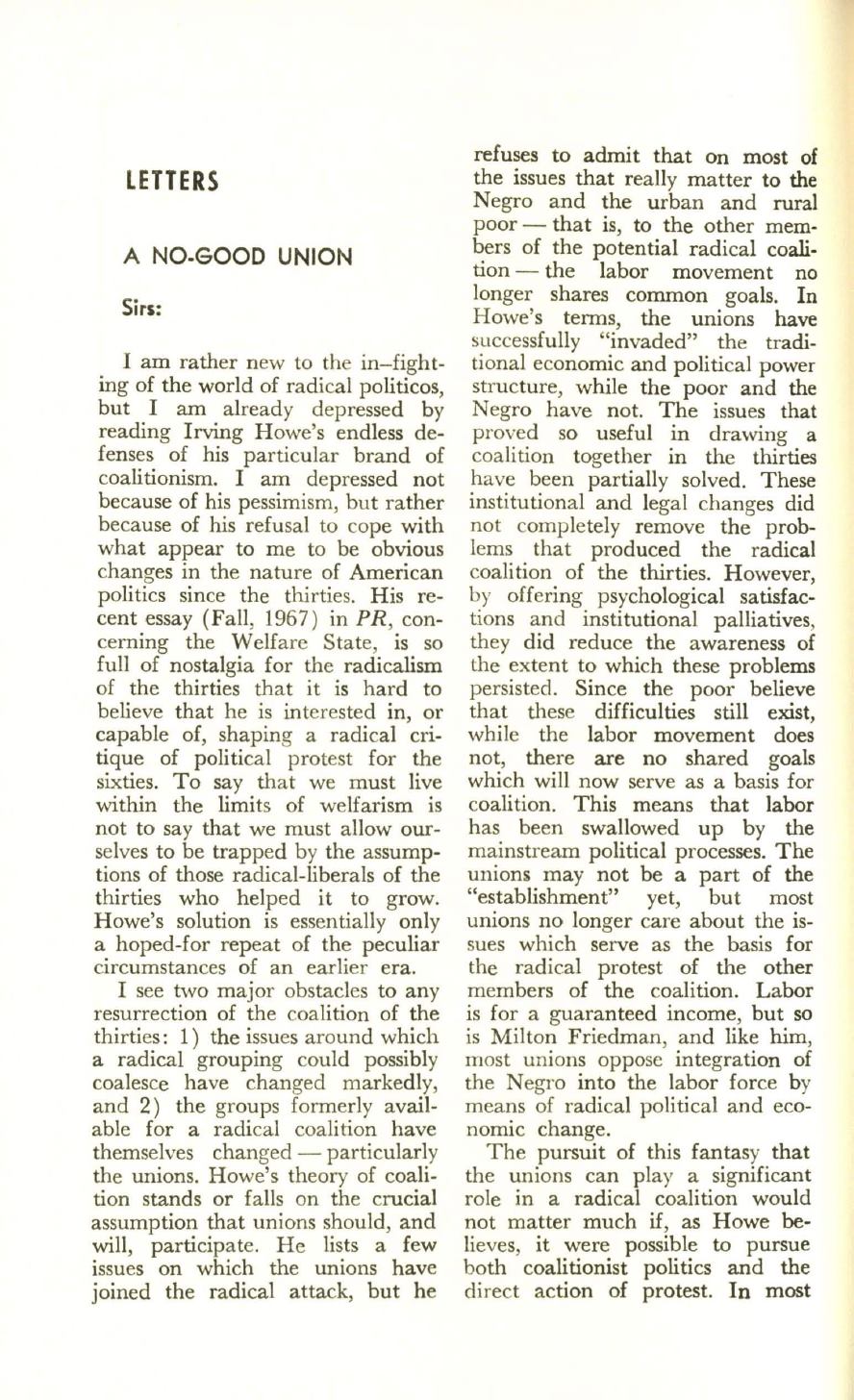
LETTERS
A NO.GOOD UNION
Sirs:
I am rather new to the in-fight–
ing of the world of radical politicos,
but I am already depressed by
reading Irving Howe's endless de–
fenses of his particular brand of
coalitionism. I am depressed not
because of his pessimism, but rather
because of his refusal to cope with
what appear to me to be obvious
changes in the nature of American
politics since the thirties. His re–
cent essay (Fall, 1967) in
PR,
con–
cerning the Welfare State, is so
full of nostalgia for the radicalism
of the thirties that it is hard to
believe that he is interested in, or
capable of, shaping a radical cri–
tique of political protest for the
sixties. To say that we must live
within the limits of welfarism is
not to say that we must allow our–
selves to be trapped by the assump–
tions of those radical-liberals of the
thirties who helped it to grow.
Howe's solution is essentially only
a hoped-for repeat of the peculiar
circumstances of an earlier era.
I see hvo major obstacles to any
resurrection of the coalition of the
thirties: 1) the issues around which
a radical grouping could possibly
coalesce have changed markedly,
and 2) the groups formerly avail–
able for a radical coalition have
themselves changed - particularly
the unions. Howe's theory of coali–
tion stands or falls on the crucial
assumption that unions should, and
will, participate. He lists a few
issues on which the unions have
joined the radical attack, but he
refuses to admit that on most of
the issues that really matter to the
Negro and the urban and rural
poor - that is, to the other mem–
bers of the potential radical coali.
tion - the labor movement no
longer shares common goals. In
Howe's terms, the unions have
successfully "invaded" the tradi–
tional economic and political power
structure, while the poor and the
Negro have not. The issues that
proved so useful in drawing a
coalition together in the thirties
have been partially solved. These
institutional and legal changes did
not completely remove the prob–
lems that produced the radical
coalition of the thirties. However,
by offering psychological satisfac–
tions and institutional palliatives,
they did reduce the awareness of
the extent to which these problems
persisted. Since the poor believe
that these difficulties still exist,
while the labor movement does
not, there are no shared goals
which will now serve as a basis for
coalition. This means that labor
has been swallowed up by the
mainstream political processes. The
unions may not be a part of the
"establishment" yet, but most
unions no longer care about the is–
sues which serve as the basis for
the radical protest of the other
members of the coalition. Labor
is for a guaranteed income, but so
is Milton Friedman, and like him,
most unions oppose integration of
the Negro into the labor force by
means of radical political and eco–
nomic change.
The pursuit of this fantasy that
the unions can play a significant
role in a radical coalition would
not matter much if, as Howe
be–
lieves, it were possible
to
pursue
both coalitionist politics and the
direct action of protest. In most


